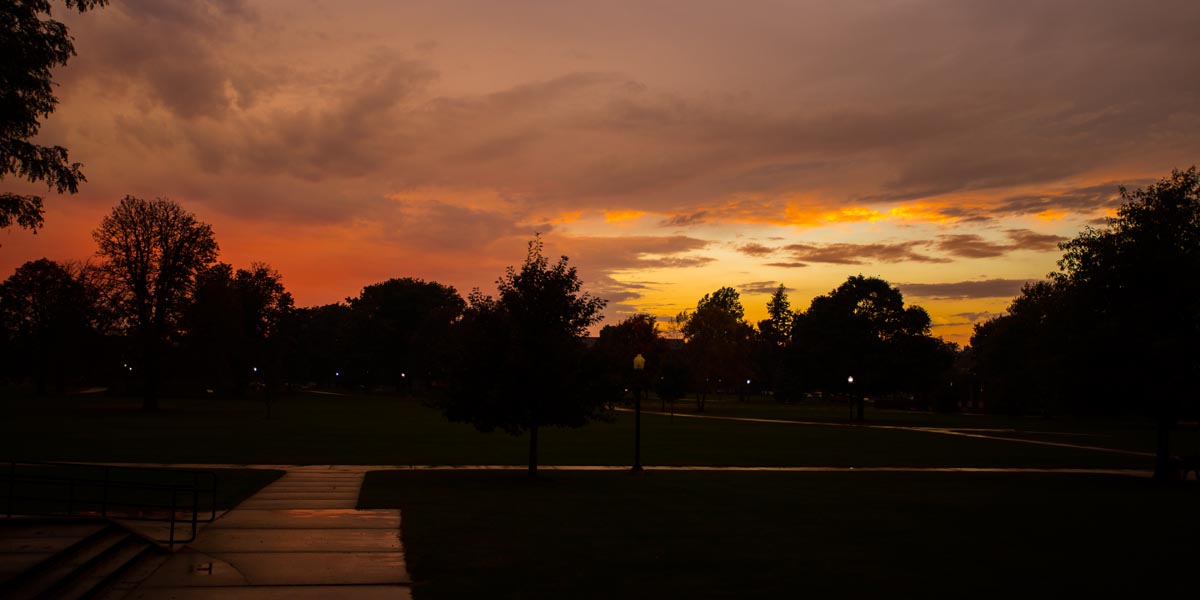

Venture Boldly

 Leading in the 21st Century
Leading in the 21st Century
From the rise of online and distance learning to the changing demographics of today's college students, higher education is evolving at a breathtaking pace. For Knox to remain a leader among liberal arts colleges in these remarkable times, I have invited the campus to work together to set an agenda for the future success of the College and its graduates. And so, over the course of this academic year, the Knox community will embark on a strategic planning exercise that we are calling Knox 2018.
The overall purpose of Knox 2018-both its outcomes and its process -- is to engage Knox faculty, staff, students, and alumni in planning that advances the mission of Knox College and its core values: educational excellence; civic engagement and social responsibility; access, inclusivity, and social justice; and sustainability. Our work will be built around six areas -- Enrolling a 21st Century Student Body; Providing a 21st Century Education; Engaging the Knox Community; Supporting a 21st Century Faculty and Staff; Sustaining Knox Financially; and Designing and Maintaining a 21st Century Campus -- each of which will frame the work of a task force over a nine-month period.
Each group has already started its work with a SWOT analysis, which involves mapping internal (S)trengths and (W)eaknesses and external (O)pportunities and (T)hreats. This analysis is a tremendously valuable exercise, as it presses us to discuss how the trends and events of the larger world affect our daily work here at Knox. Surprisingly, this exercise isn't so very different from what our faculty and students do every day.
It is true that we at Knox seem to stand at a considerable distance from the Congressional budget showdown and the debate over the U.S. response to the use of chemical weapons; at a considerable distance from Kenya, where important underwater reserves have just been discovered; at a considerable distance from the Census Bureau's announcement that economic inequality is at an historic high, greater than ever measured in this country; that we stand at a considerable distance from so much of what is sometimes referred to as the "real world."
But in classes every week, faculty and students address the real world: they probe texts-both modern and ancient-in which the characters suffered the terror of war; they study bioterrorism from an interdisciplinary perspective; they explore the challenge of sustainability and the nature of world energy and water resources; they analyze the major challenges facing the Middle East; and they practice teaching and learning in a diverse world.
This is only a short catalogue of the many ways in which the classroom responds to-and prepares students for-the real world. So rich is Knox's curriculum that it would be impossible to list in brief the many ways in which students make the analytical, emotional, and aesthetic connections that form the fabric of a liberal arts education and a full life of learning. This education will shape the way students see and respond to local and global events for the rest of their lives, which is why Knox 2018 is so vital to the future success of our institution.
As we begin strategic planning discussions here on campus, I invite and encourage you, Knox alumni, parents, and friends, to participate in Knox 2018 via our website, www.knox.edu/knox2018. Please share your thoughts on the six framing questions we are addressing, as well as others that you feel are relevant to the discussion.
We are an extraordinary place and our educational program is exceptional, but we will need to summon all our creative energies to address the challenges ahead. I look forward to hearing from you and other members of the Knox community as we collectively explore our future.
Teresa L. Amott

It's Your Magazine. Tell Us What You Think
After the publication of each issue of Knox Magazine, the time I look forward to the most is those first few days after the magazine hits mailboxes. I wonder if readers will like the cover, or I try to guess which feature story will resonate the most. I eagerly check my inbox or mailbox for letters from readers. My anxiety over whether or not we misspelled someone's name or included an incorrect class year is overcome by excitement to hear what members of the Knox community think about the issue.
Yet for this first time in my tenure as editor of Knox Magazine, we didn't receive a single letter to the editor. Not one. We received a few notes praising the issue or letting us know about a mistake or an address change, but no extended comments about the stories or the featured alumni or students were sent our way. And we miss them, terribly.
Reader comments and critiques are what help us plan upcoming issues and help us continually improve the magazine. So if you really liked -- or didn't like -- an article in this issue, let us know. If you'd like to respond with additional information regarding a story, please do. Each and every letter we receive -- whether it's positive or not -- makes the magazine and its staff better.
We're serious when we say it's your magazine -- please help us make it better. We can't wait to hear from you.
Megan Scott '96
1968
A.B.L.E. (Allied Blacks for Liberty & Equality) was founded.
Open to students of all races, uniting them around common concerns regarding the Black experience